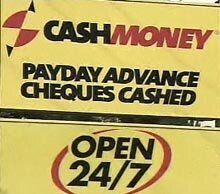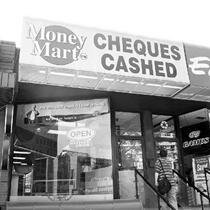Battle Creek Credit Union Meant to Thwart Efforts of Payday Loan Lenders
The heyday of the payday loan company may be about to end in Battle Creek.
 By April, organizers expect to open the Inspire Community Federal Credit Union, created to help low- to middle-income area residents avoid the financial minefields of predatory lenders.
By April, organizers expect to open the Inspire Community Federal Credit Union, created to help low- to middle-income area residents avoid the financial minefields of predatory lenders.
The planned credit union has leased space at 80 W. Michigan Ave., Suite B, next to the Old Tyme Bakery at the base of a city parking garage, and is working on getting federal regulatory approval to open.
“This is going to create real change that will really make a difference in people’s lives,” said Charles Rose, a member of the credit union- steering committee.
“I think that if you take a look at a lot of the efforts that are going on, some of them, two years from now, will say, ‘Hey, it was nice that we did that,’” said Rose, also neighborhood economic development administrator for the Battle Creek neighborhood services department. “But this credit union will stay. It will be affecting generations of people in this city.”
Eric Tobin, the project coordinator, noted that this is a community development credit union, created to provide an alternative to the expensive choices that low-income people often find themselves having to make in tough times; i.e. cash loans.
Among the first offerings will be short-term loans that will make a lot more financial sense than using a providers of savings account payday loans, which charge annual interest rates of more than 400 percent, Tobin said Tuesday.
Also available will be two-year installment loans as an attractive alternative to acquiring goods through rent-to-own dealers, Tobin said.
“Somebody needs to fill that gap, and somebody needs to do that without taking advantage of them,” he said.
That type of lending will be coupled with referrals to local financial education programs such as those offered by Neighborhoods Inc. and Guardian Finance and Advocacy Services, Tobin said.
Guardian’s Jackie DeHaan championed the credit union idea after hearing about it at a conference about three years ago, Rose said.
In recent months, organizers have selected and trained a board of directors, picked their name and location and are revising their business plan, reports The Battle Creek Enquirer.
The organization has about $140,000 in seed money from the W.K. Kellogg Foundation, Battle Creek Community Foundation and Miller Foundation to move toward opening day.








